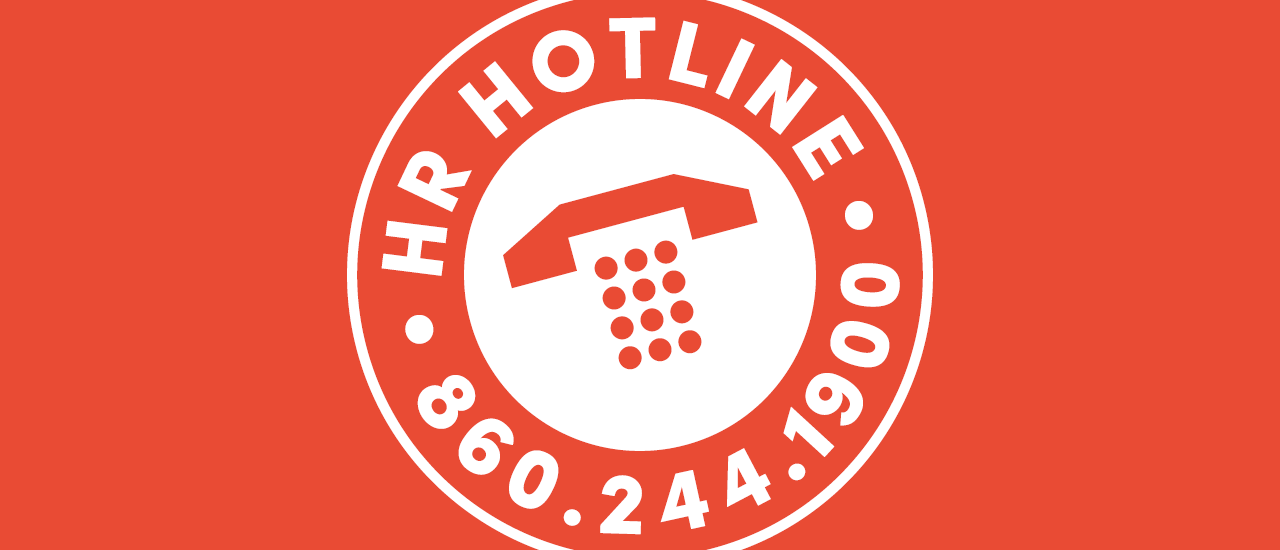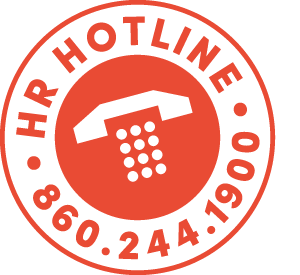HR Hotline: Do Workers Out Sick with COVID or Quarantining Qualify for FMLA?

Q: Several of our employees are either out sick with COVID-19, or are quarantining. Are they eligible for paid benefits under Connecticut’s new family and medical leave law?
Do we have to hold their job and grant them leave, even though we only have 10 employees? Is there some official process we’re supposed to follow?
A: Connecticut’s new FMLA statutes can be overwhelming, especially for small employers who have never had to administer this type of leave before.
Effective Jan. 1, 2022, most private employers with just one or more employees are covered by the law.
This means that, even if you have a very small workforce, you must provide job-protected leave to eligible employees.
Qualifying Reasons
The reasons for leave include the following:
- To receive treatment and/or recover from your own serious health condition, including pregnancy and serving as an organ or bone marrow donor (aka “medical leave”)
- To care for a family member who has a serious health condition (aka “caregiver leave”)
- To bond with a newborn or newly placed adopted or foster child and, in the case of adoption and foster care, to attend to pre-placement activities (aka “bonding leave”)
- To care for a family member injured on active duty in the military (aka “military caregiver leave”)
- To attend to specific issues associated with a parent, spouse or child’s overseas active duty (aka “qualifying exigency leave”)
- To attend to specific issues associated with directly experiencing family violence (aka “family violence leave)
Job-Protected Leave
Whether an employee, out sick with COVID-19, qualifies for FMLA job-protected leave will depend in part on whether that employee has a serious health condition—generally requiring either inpatient care or continuing treatment by a healthcare provider.
Most mild cases of COVID will not qualify; serious, long-term illnesses may. However, employers need not determine the severity of their employees’ illnesses; instead, they should rely on the information provided by the employees’ healthcare providers.
An employee who is only quarantining due to COVID exposure is not eligible for FMLA leave.
An employee who is only quarantining due to COVID exposure—not sick themselves, and not caring for a family member—is not eligible for FMLA leave.
Employers can learn more about the process for granting leave from the state Department of Labor, including the forms to provide their workforce.
Paid Leave
In addition to job-protected leave provided by the employer, workers may also be entitled to income replacement benefits, managed by the Connecticut Paid Leave Authority.
Employees apply for these benefits directly through the authority.
As with job-protected leave, paid benefits related to COVID-19 will only be available when an employee has a serious health condition or is caring for a family member with a serious health condition.
COVID-related paid leave benefits are not only available when an employee has a serious health condition or is caring for a family member.
Understanding the complexities of these new laws and regulations can be a daunting task. To address this learning curve, the authority created a pilot program for small businesses in need of hands-on guidance.
Participants in the program will be matched with an authority representative, who will be available to answer questions and assist the employer with the administration of leave requests.
Connecticut employers with fewer than 75 employees are eligible to join, but space is limited. Interested employers should contact CBIA’s Diane Mokriski.
HR problems or issues? Email or call CBIA’s Diane Mokriski at the HR Hotline (860.244.1900) | @HRHotline. The HR Hotline is a free service for CBIA member companies.
RELATED
EXPLORE BY CATEGORY
Stay Connected with CBIA News Digests
The latest news and information delivered directly to your inbox.



